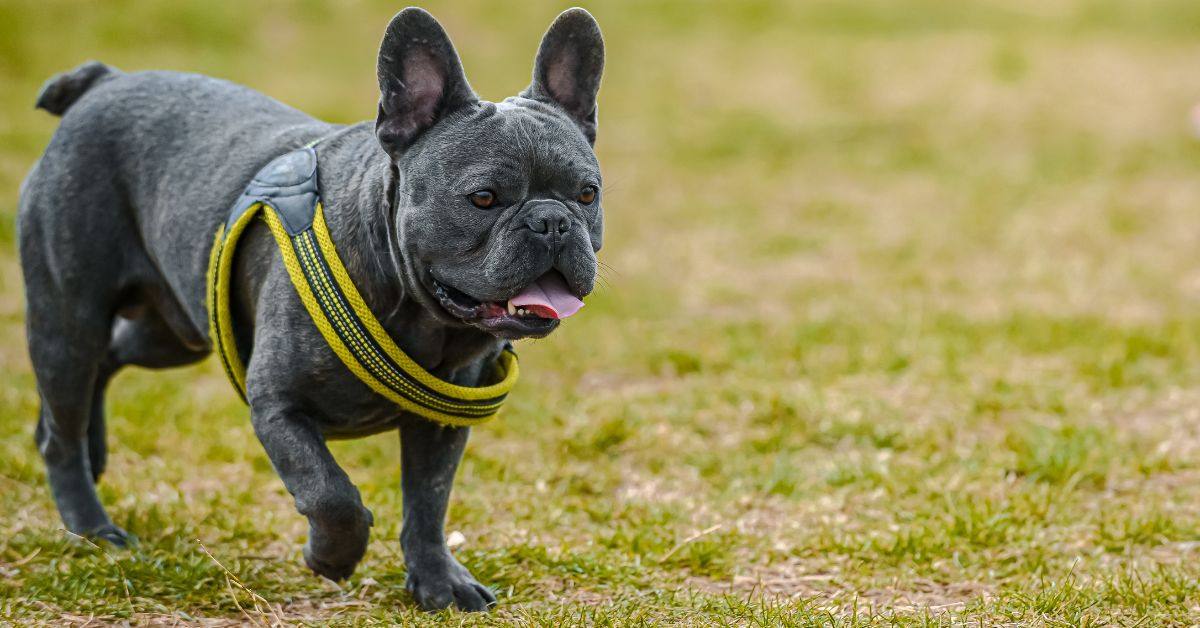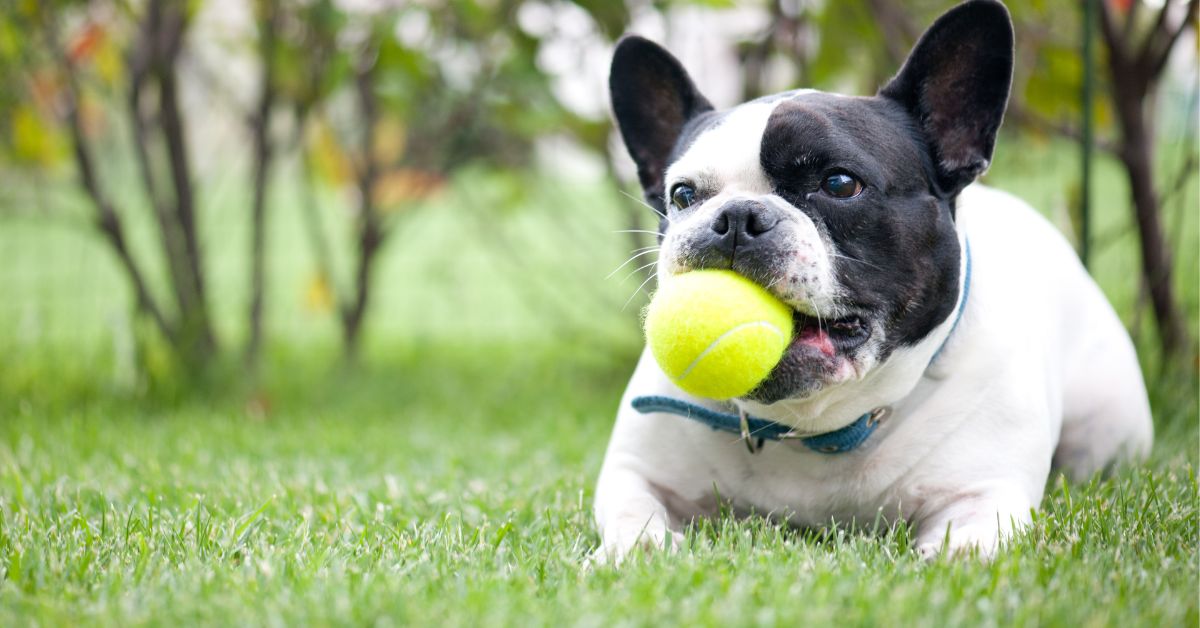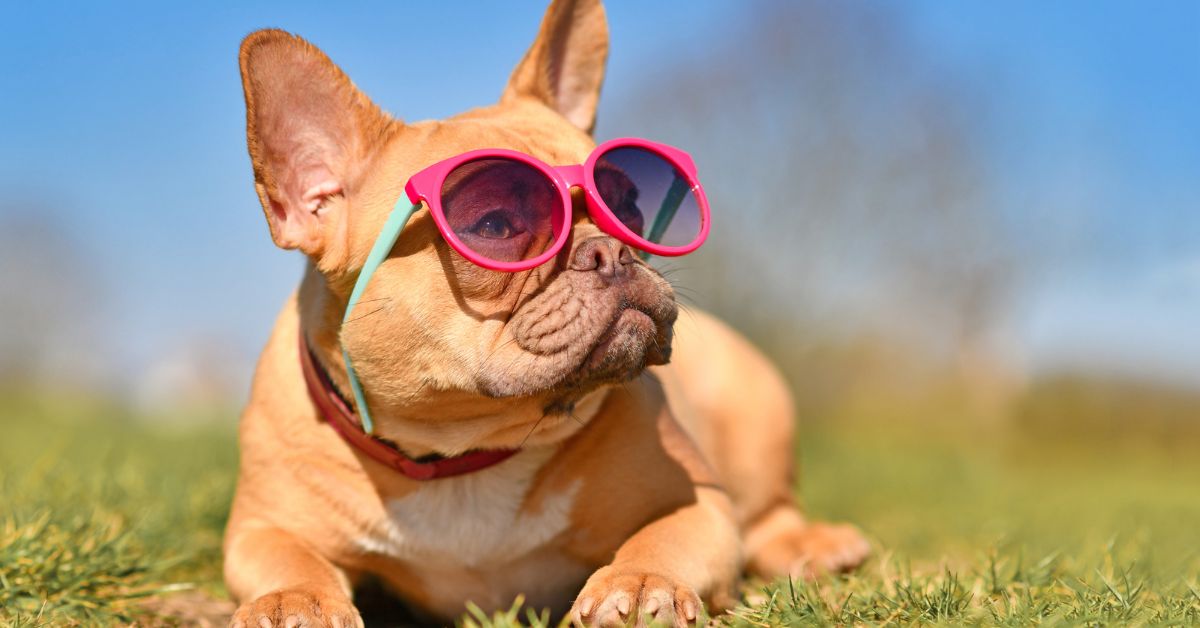French Bulldogs, with their distinctive bat-like ears and charming personalities, have become immensely popular pets in recent years. This small, sturdy breed is adored by dog enthusiasts worldwide. If you’re considering adding a French Bulldog to your family or simply want to learn more about these delightful companions, you’ve come to the right place.
In this blog post, we’ll cover everything you need to know about French Bulldogs, including their history, temperament, care requirements, and more.
About French Bulldog
History of French Bulldog
The French Bulldog, also known as the Frenchie, is a small breed of domestic dog that originated in France. The breed’s history can be traced back to the 1800s when they were developed as a companion dog, primarily for lace workers in the Nottingham region of England.
During the Industrial Revolution, many lace workers migrated to France, bringing their miniature Bulldogs with them. These Bulldogs were then crossed with local French breeds, such as the Terrier Boule and the Pug, resulting in the creation of the French Bulldog we know today.
The breed quickly gained popularity among the French bourgeoisie and soon became a fashionable pet. Its distinctive appearance, with its bat-like ears, compact size, and expressive face, captivated dog enthusiasts. French Bulldogs were especially favored by artists, including painters like Toulouse-Lautrec, who often depicted them in their artwork.
In the early 20th century, French Bulldogs made their way to the United States, where they also gained popularity. The American Kennel Club officially recognized the breed in 1898, and it has since become one of the most beloved and sought-after companion dogs in the world.
Despite its charming personality and adorable looks, the French Bulldog has faced some health challenges. Due to its brachycephalic skull shape, Frenchies are prone to respiratory issues. Responsible breeders are now working to breed healthier specimens with improved breathing capabilities.
Today, the French Bulldog is cherished for its friendly and affectionate nature, making it a popular choice for families and individuals alike. Its adaptability to various living conditions, combined with its delightful personality, has cemented its place as a beloved companion dog worldwide.
Appearance of French Bulldog
The French Bulldog is a small, muscular dog with a distinctive appearance. They have a compact, sturdy build, typically weighing between 16-28 pounds (7-13 kg) and standing around 11-12 inches (28-30 cm) tall at the shoulder.

One of their most notable features is their large, bat-like ears that sit erect on the top of their head. Their face is characterized by a broad, flat skull, a short snout, and prominent round eyes that exude a friendly and alert expression. Frenchies have a slightly wrinkled forehead, adding to their charm.
Their coat is short, smooth, and dense, coming in a variety of colors such as brindle, fawn, cream, or pied (a mixture of white with another color). Their tail is naturally short and often described as a “screw” or “corkscrew” shape.
Overall, the French Bulldog appearance is captivating and adorable, contributing to its popularity as a beloved companion and lap dog.
French Bulldog Temperament and Activities
The French Bulldog has a delightful temperament that makes it a popular choice as a companion dog. They are known for being affectionate, playful, and sociable. Frenchies are generally friendly and get along well with children and other pets, making them great family dogs.
While they have a moderate energy level, French Bulldogs are not overly active. They enjoy short walks and play sessions but are content with indoor activities as well. They are not typically demanding in terms of exercise and can adapt well to apartment living.
French Bulldogs thrive on human companionship and are known for their love of attention. They enjoy being in the company of their owners and can be quite affectionate and cuddly. Despite their small size, they have a big personality and are often described as comical and entertaining.
It’s important to note that French Bulldogs can be stubborn at times, which may require consistent and patient training. However, their loving and loyal nature makes them wonderful companions for those seeking a devoted and affectionate pet.
French Bulldog Health Issues
Like many purebred dogs, French Bulldogs are prone to certain health issues. One of the most common concerns is their brachycephalic anatomy, which can lead to respiratory problems. Their short snouts and compact airways make them susceptible to snoring, wheezing, and difficulty breathing, especially in hot or humid weather.
French Bulldogs may also experience spinal disorders, such as intervertebral disc disease, which can cause pain and mobility issues. Additionally, they can be prone to joint problems, including hip and elbow dysplasia.
Skin allergies and dermatitis are another common health issue in French Bulldogs. They may be prone to sensitive skin, leading to itching, rashes, and ear infections.
Due to their unique health challenges, it is important for French Bulldog owners to provide proper care, including regular veterinary check-ups, a balanced diet, and appropriate exercise. Working with a responsible breeder who prioritizes health testing can help reduce the risk of genetic health conditions in French Bulldogs.
French Bulldog Care Tips
Taking care of a French Bulldog involves several key aspects to ensure their well-being and happiness:

Regular veterinary care: Schedule routine check-ups with a trusted veterinarian to monitor your French Bulldog overall health, address any concerns, and stay up-to-date on vaccinations and preventive care.
Balanced diet: Provide your Frenchie with a nutritious and well-balanced diet formulated for their specific needs. Consult with your veterinarian for guidance on the appropriate type and amount of food to feed your dog.
Exercise and mental stimulation: While French Bulldogs are not extremely active, they still require regular exercise to maintain a healthy weight and promote good muscle tone. Engage them in short walks, play sessions, or mentally stimulating activities that keep them entertained.
Temperature regulation: Due to their brachycephalic nature, French Bulldogs can struggle with heat and humidity. Avoid exercising them during the hottest parts of the day, provide access to shade and fresh water, and never leave them in a hot car.
Dental care: Maintain good dental hygiene by brushing your French Bulldog teeth regularly and providing appropriate chew toys or dental treats. This helps prevent dental issues and keeps their breath fresh.
Socialization and training: Start socializing and training your Frenchie from a young age. This helps them become well-adjusted, obedient, and comfortable in various environments and social settings.
Love and attention: French Bulldogs thrive on human companionship and affection. Spend quality time with your Frenchie, provide them with love, attention, and mental stimulation. They are happiest when they are part of the family and included in daily activities.
By following these care tips, you can ensure that your French Bulldog leads a healthy, happy, and fulfilling life as your beloved companion.
French Bulldog Lifespan
The average lifespan of a French Bulldog is typically between 10 and 12 years. However, it’s important to note that individual dogs may vary, and factors such as genetics, overall health, diet, exercise, and quality of care can influence their lifespan.
French Bulldogs, like many brachycephalic breeds, may be prone to certain health issues that can affect their longevity. Respiratory problems, spinal disorders, joint issues, and skin allergies are some of the common health concerns that can impact their lifespan if not properly managed.
To promote a longer and healthier life for your French Bulldog, ensure they receive regular veterinary care, a balanced diet, appropriate exercise, and a safe and comfortable environment. Early detection and treatment of any health issues, as well as responsible breeding practices that prioritize health and genetic diversity, can also contribute to maximizing the lifespan of French Bulldogs.
French Bulldog Maintenance Cost
The maintenance cost of a French Bulldog can vary depending on various factors such as location, quality of care, and specific needs of the dog. Here are some common expenses to consider:
Initial purchase cost: The price of a French Bulldog puppy can vary widely based on factors such as lineage, breeder reputation, and location. In India, the cost can range from around ₹30,000 to ₹1,00,000 or more ($400 to $1,300 or more). Internationally, the average cost can range from $1,500 to $3,500 or higher.
Veterinary care: Regular veterinary check-ups, vaccinations, preventive medications, and unexpected medical expenses should be considered. Routine annual vet expenses can range from ₹5,000 to ₹10,000 ($65 to $130) or more. Emergency treatments or surgeries can significantly increase costs.
Food and supplies: The cost of high-quality dog food, treats, toys, bedding, grooming supplies, and other essential items may vary based on brand preferences and quality. A monthly estimate for food and supplies can range from ₹2,000 to ₹5,000 ($26 to $65) or more.
Grooming: French Bulldogs have minimal grooming needs, but occasional professional grooming may be required. Grooming costs can vary depending on the location and services provided. Estimate ₹500 to ₹1,500 ($7 to $20) per grooming session.
Training and socialization: Training classes, obedience training, and socialization activities are essential for French Bulldogs. The cost of training can vary, and prices range from ₹3,000 to ₹10,000 ($40 to $130) or more for group or private sessions.
Insurance: Considering pet insurance can help cover unexpected medical costs. The cost of insurance premiums can vary based on coverage, provider, and the age and health of the dog.
It’s important to remember that these cost estimates are approximate and can vary significantly. Additionally, unforeseen expenses can arise, such as unexpected medical emergencies or specialized care requirements. It’s crucial to budget and be financially prepared for the lifelong care of a French Bulldog.
Grooming for French Bulldog
Grooming for French Bulldogs is relatively straightforward due to their short, smooth coat. Here are some grooming tips for French Bulldogs:
Brushing: While French Bulldogs have a short coat, regular brushing helps remove loose hair and distribute natural oils. Use a soft-bristle brush or a grooming mitt to brush your Frenchie’s coat once or twice a week.
Bathing: French Bulldogs typically need baths every 2-3 months or as needed. Use a gentle dog shampoo formulated for sensitive skin and thoroughly rinse off the soap to prevent any residue. Take care to keep water out of their ears.
Wrinkle and Facial Care: French Bulldogs have adorable facial wrinkles that require special attention. Clean their facial folds regularly with a damp cloth or a pet-safe wipe to prevent the buildup of dirt, moisture, or bacteria. Ensure the folds are completely dry after cleaning to avoid irritation or infection.
Ear Cleaning: Regularly check and clean your French Bulldog ears to prevent wax buildup and infections. Use a vet-recommended ear cleaner and gently wipe the outer part of the ear with a cotton ball or soft cloth. Avoid inserting anything deep into the ear canal.
Nail Trimming: Trim your Frenchie’s nails every few weeks or as needed to keep them at a comfortable length. Use dog-specific nail clippers or a grinder and be cautious not to cut into the quick (the sensitive part of the nail that contains blood vessels).
Dental Care: Dental hygiene is important for French Bulldogs. Brush their teeth regularly with a dog-specific toothbrush and toothpaste or use dental wipes or dental chews recommended by your veterinarian. This helps prevent tartar buildup and maintain good oral health.
Eye Care: French Bulldogs are prone to eye issues. Keep their eyes clean and free from discharge by gently wiping them with a damp cloth or a pet-safe eye wipe. If you notice excessive tearing, redness, or any signs of discomfort, consult a veterinarian.
Additionally, check your Frenchie’s paws for any signs of irritation or foreign objects and trim the hair between the paw pads if necessary. Regular grooming sessions also provide an opportunity to inspect your dog’s overall health and identify any abnormalities or skin issues.
If you’re unsure about any specific grooming techniques or have concerns about your Frenchie’s coat or skin, it’s always best to consult with a professional groomer or your veterinarian for guidance.
Facts about French Bulldog
Here are some interesting facts about French Bulldogs:
Origin: French Bulldogs were originally bred in England as miniature versions of Bulldogs. They gained popularity in France, where they acquired their name “French Bulldog.”
Bat-Like Ears: One of the most recognizable features of French Bulldogs is their bat-like ears. These erect and wide-set ears give them a unique and adorable appearance.
Companion Dogs: French Bulldogs are known for their affectionate and friendly nature. They make excellent companion dogs and are highly devoted to their owners.
Non-Sporting Group: In the American Kennel Club (AKC) classification, French Bulldogs are part of the Non-Sporting Group. This group consists of diverse breeds with various characteristics and purposes.
Brachycephalic Breeds: French Bulldogs have a brachycephalic skull shape, which means they have a short snout and a pushed-in face. This anatomy can lead to certain health issues related to breathing and temperature regulation.
Social Butterflies: French Bulldogs are social dogs that enjoy the company of humans and other animals. They are generally good with children and get along well with other pets.
Lap Dogs: French Bulldogs love to cuddle and be close to their owners. They often seek out laps or cozy spots to curl up and relax.
Minimal Exercise Requirements: While French Bulldogs enjoy short walks and play sessions, they are not overly active dogs. They are content with moderate exercise and can adapt well to apartment living.
Expressive Faces: French Bulldogs have expressive facial features that can convey a range of emotions. Their big, round eyes and wrinkled foreheads make them particularly endearing.
